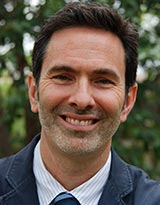
The metaphor of porn has become pervasive in our cultural conversation. In addition to food porn (which you can find all over Facebook and Instagram in the form of “check out my awesome meal” posts), there is wine porn (a cultured obsession with “trophy wines”), real estate porn (a consumer obsession with beautiful, unattainable properties), and tragedy porn (a media obsession with catastrophe as ratings-grab).
What is interesting is both how glibly the metaphor of pornography is used (potentially making “sex porn” even more culturally acceptable by the prevalence of the metaphor) and how the metaphor suggests a kind of confession about our habits of cultural consumption. We compulsively and covetously attend to the surface of things that are constructed to be both viscerally attractive and ultimately unsatisfying. The viewer or reader must always come back for more.
In this election year, I believe we are experiencing yet a new version of this trend—perhaps we would call it “campaign porn”—a mode of political campaigning in which spectacle serves to grab attention and ratings at the expense of context or depth. Campaign porn intentionally shifts attention from substantive discussion to exhibition, fear, or outrage. It promises cheap and easy gratifications to the neglect of long-term strategies of betterment.
In the Christian tradition, there are ways of gazing upon the world that draw us closer to God and ways of gazing that distance us. The first is iconic, the second is idolatrous.
Icons attract because they mediate an encounter with the depth of what is depicted, opening not just onto the truth of the thing imaged but onto the creator of the thing imaged. Icons become a means by which the God who created all things returns our gaze though the medium of creation and thereby encounters us in a luminosity that exceeds the object itself. The icon, as Jean-Luc Marion observes, “unbalances human sight in order to engulf it in infinite depth” (God Without Being, p. 24).
The idol, on the other hand, attracts by flattening our gaze and subsuming it in the spectacle of the surface—“the desire of the eyes … [which] comes not from the Father but from the world” (1 John 2:16). An engagement with an idol is not shaped by receptivity to the gaze of another but by the desire to control the object and keep distance. Idolatry is an ocular exit and return in which the object does little more than reflect ourselves back to us with an aura of holiness, thereby hallowing our own biases and blind spots. Thus Jeremiah’s indictment of an idolatrous Israel begins, “O foolish and senseless people, who have eyes, but do not see” (Jer 5:21).
Campaign porn offers a self-justifying idol, while close attention to shared vulnerability and mutual good offers an icon that unbalances our sight for the sake of a wider vision.
What if, in this Lenten period of the election season, we adopted the ascetic practice of curating our political attention—asking ourselves how we will choose to see issues, what political parades we will lay eyes on, and how we will take charge of our gaze from those who would commodify the political as an idol?
How will you look upon the political process during Lent?
Can you find iconic images in our common life that feed hope rather than cynicism?
 Scott Bader-Saye (@ScottBaderSaye) serves as academic dean and holds the Helen and Everett H. Jones Chair in Christian Ethics and Moral Theology at Seminary of the Southwest. He joined the faculty in 2009 after teaching for twelve years at the University of Scranton, a Jesuit university in Scranton, PA. His academic interests include political theology, sexual ethics, ecology/economy, and Jewish/Christian/Muslim dialogue.
Scott Bader-Saye (@ScottBaderSaye) serves as academic dean and holds the Helen and Everett H. Jones Chair in Christian Ethics and Moral Theology at Seminary of the Southwest. He joined the faculty in 2009 after teaching for twelve years at the University of Scranton, a Jesuit university in Scranton, PA. His academic interests include political theology, sexual ethics, ecology/economy, and Jewish/Christian/Muslim dialogue.

